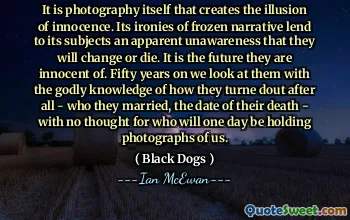
If you have ever felt slightly nauseous walking through an aged care facility, puckered your face against a smell, observed a grown woman clutching a dolly with desperation, felt a flood of melancholy as death fills your view – then you are in a perfect position to be a supportive psychotherapist for those whose lives are peppered with this everyday.
This quote poignantly captures the visceral and emotional experiences often encountered in aged care facilities, highlighting the complex and confronting nature of such environments. It reveals the raw human responses—discomfort, disgust, sadness—that arise in the face of aging, mortality, and vulnerability. Yet, rather than shying away from these emotions or the realities they expose, the quote suggests that such reactions can serve as a foundation for empathy and support. It emphasizes the unique position of those who can bear witness to these moments authentically, without detachment or denial, to provide meaningful therapeutic support.
The imagery used is vivid and intimate: feeling nausea, puckering one’s face at an odor, watching a woman clutch an object in desperation—all vivid snapshots of human frailty and the emotional weight borne by those connected to the elderly or terminally ill. The flood of melancholy reinforces the depth of emotional engagement required, recognizing death as an unavoidable, omnipresent presence in these settings.
From a psychotherapeutic standpoint, the quote underlines the importance of confronting uncomfortable emotions rather than retreating from them. It acknowledges that therapists who understand and have experienced these feelings are uniquely equipped to guide others through similar hardships. The notion of lives 'peppered' with these everyday experiences evokes the ongoing, repetitive nature of these encounters, reinforcing that this is not a rare or isolated experience but a continuous part of life for many.
Ultimately, this tribute to emotional sensitivity and the courage to face discomfort invites deep compassion and offers a humble yet powerful affirmation of the role of psychotherapists who work in these challenging realms. It encourages embracing vulnerability as a strength in the service of providing support for some of the most profound human experiences: aging, decay, and the approach of death.
---Felicity Chapman---









